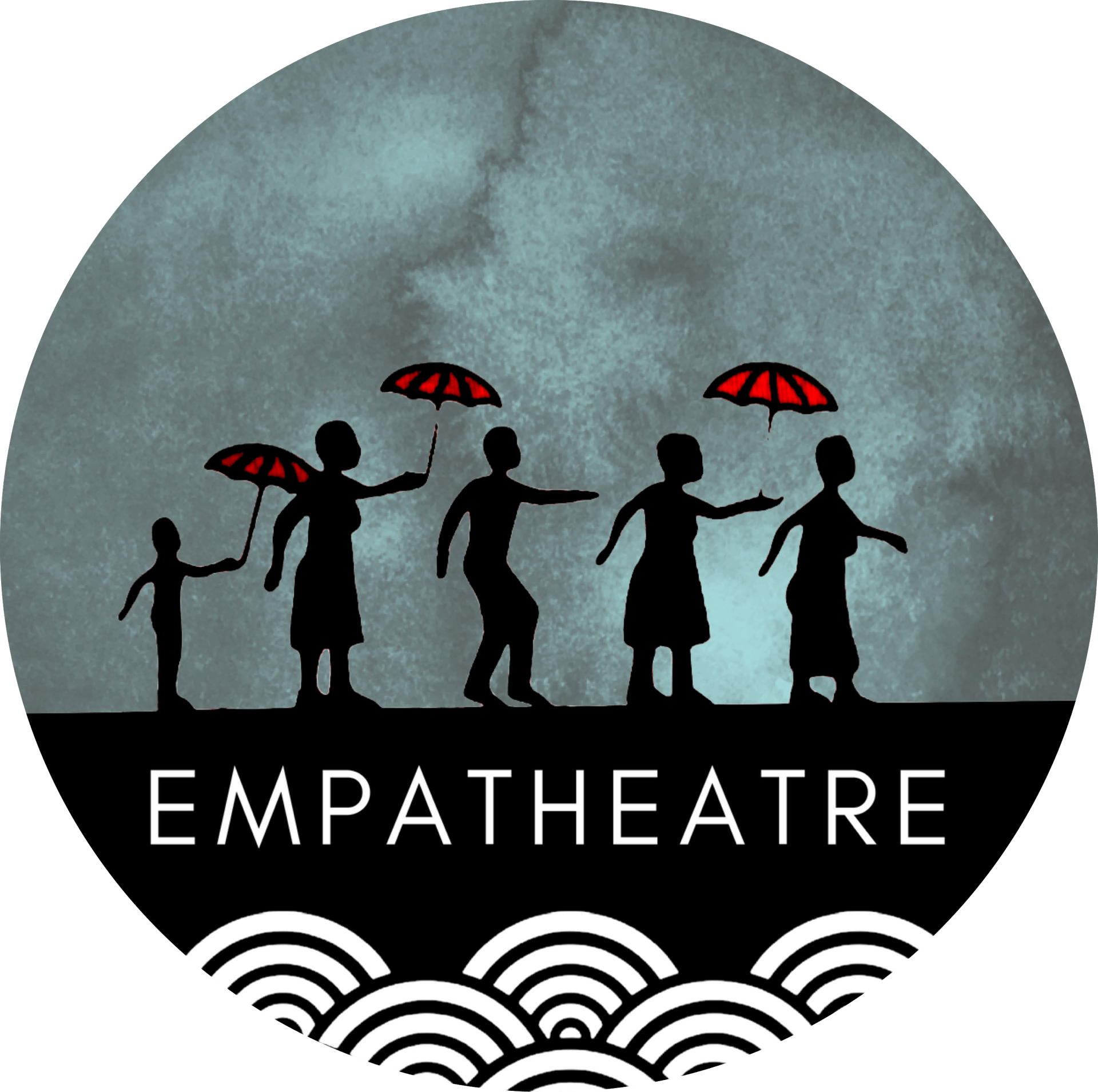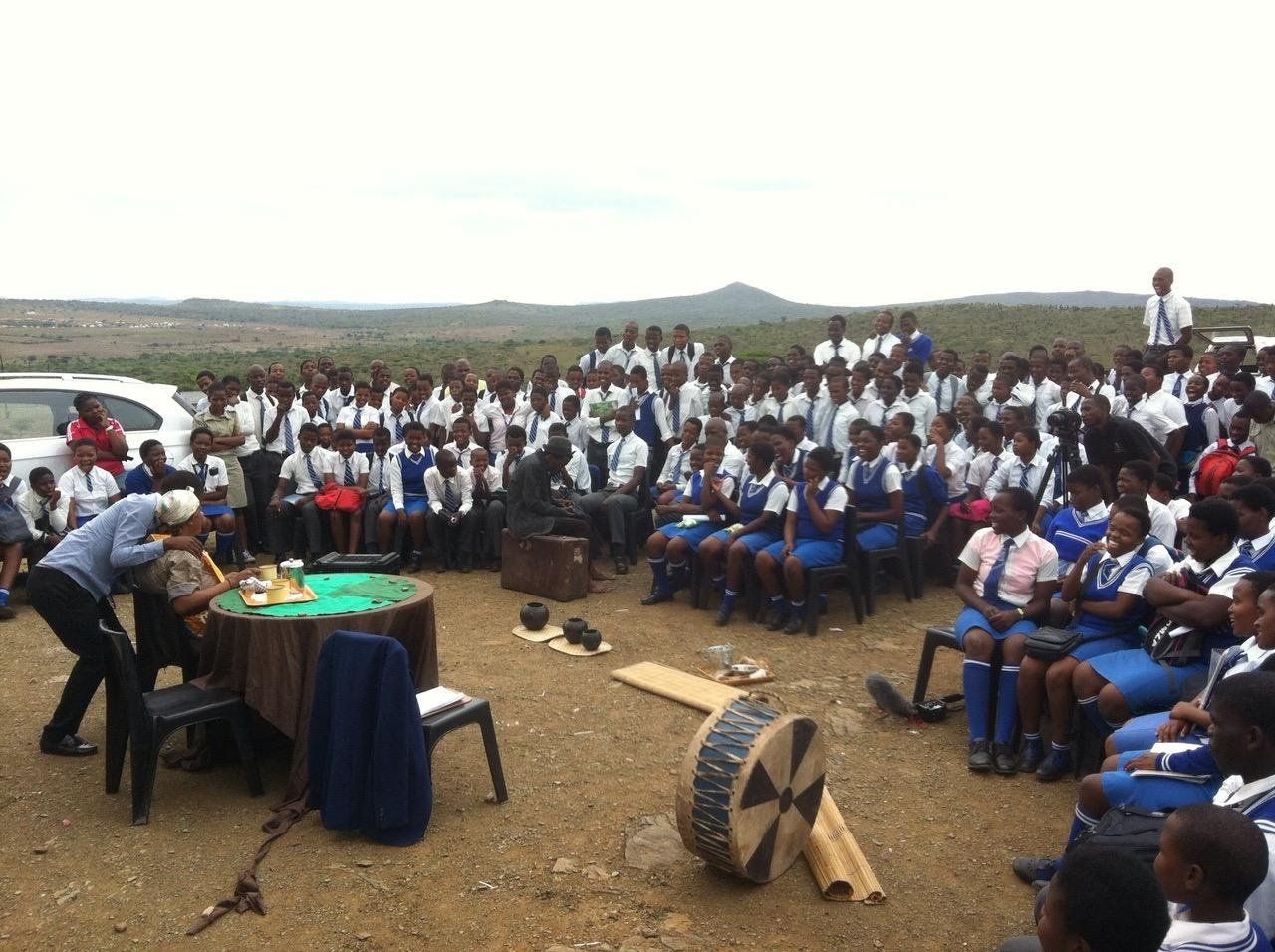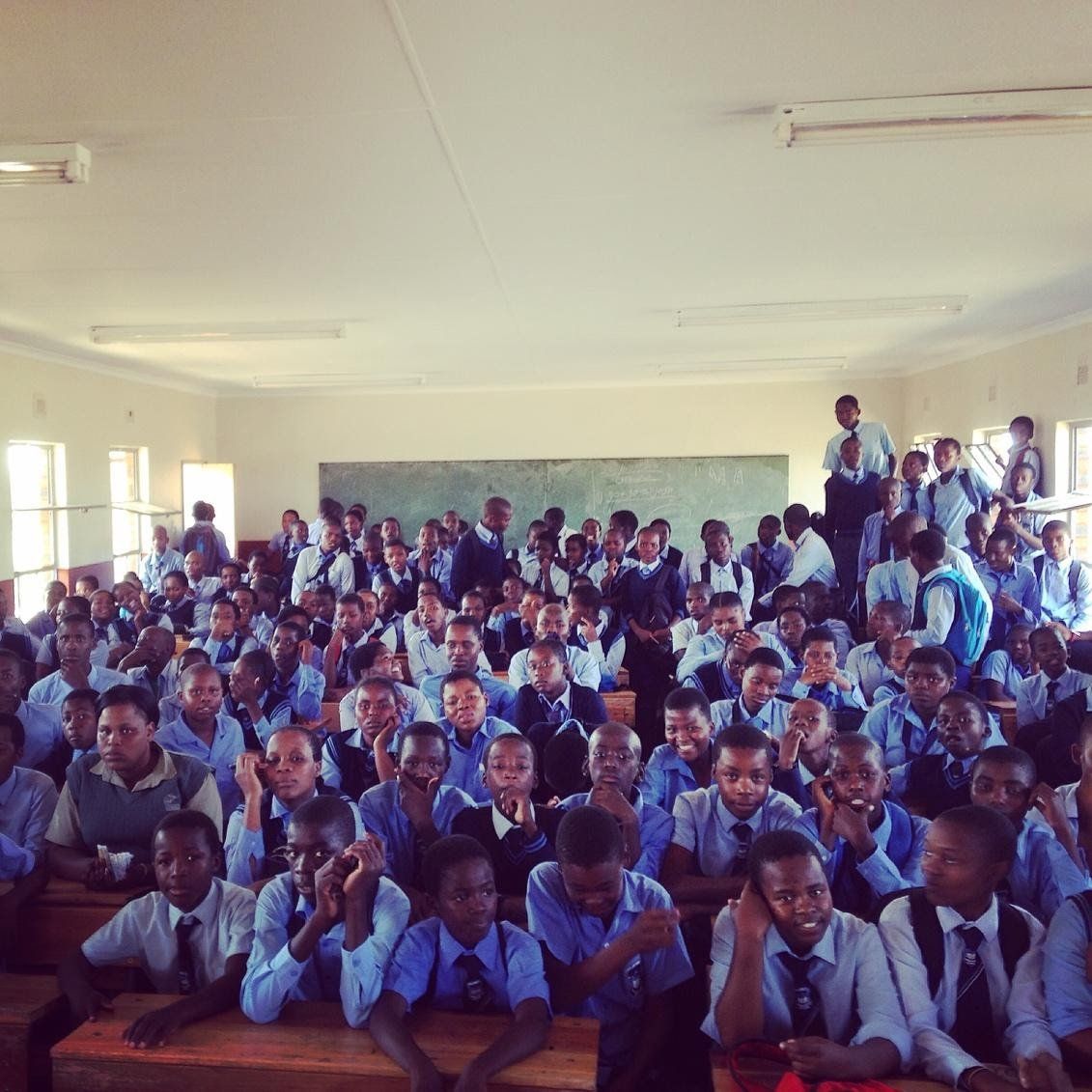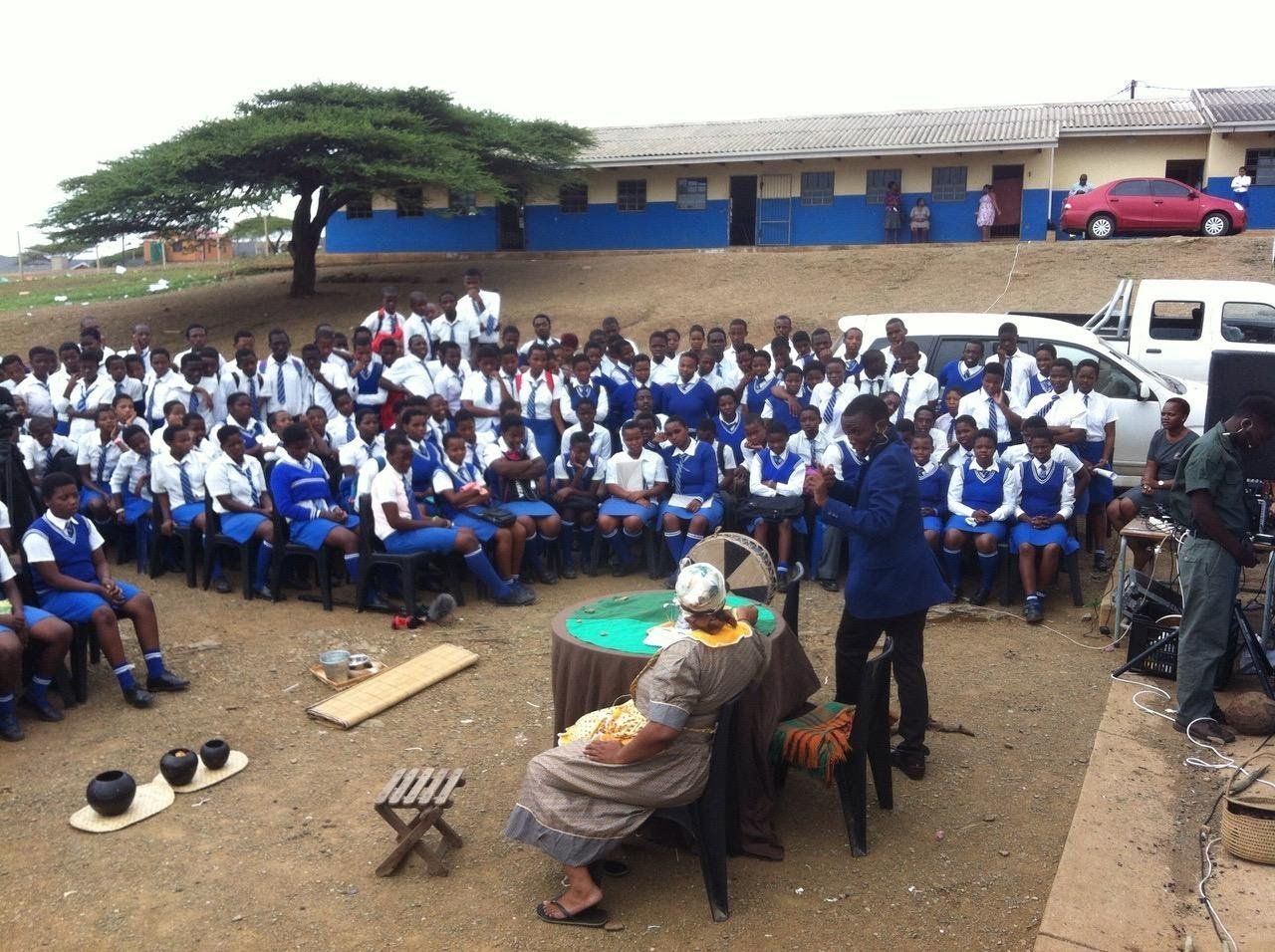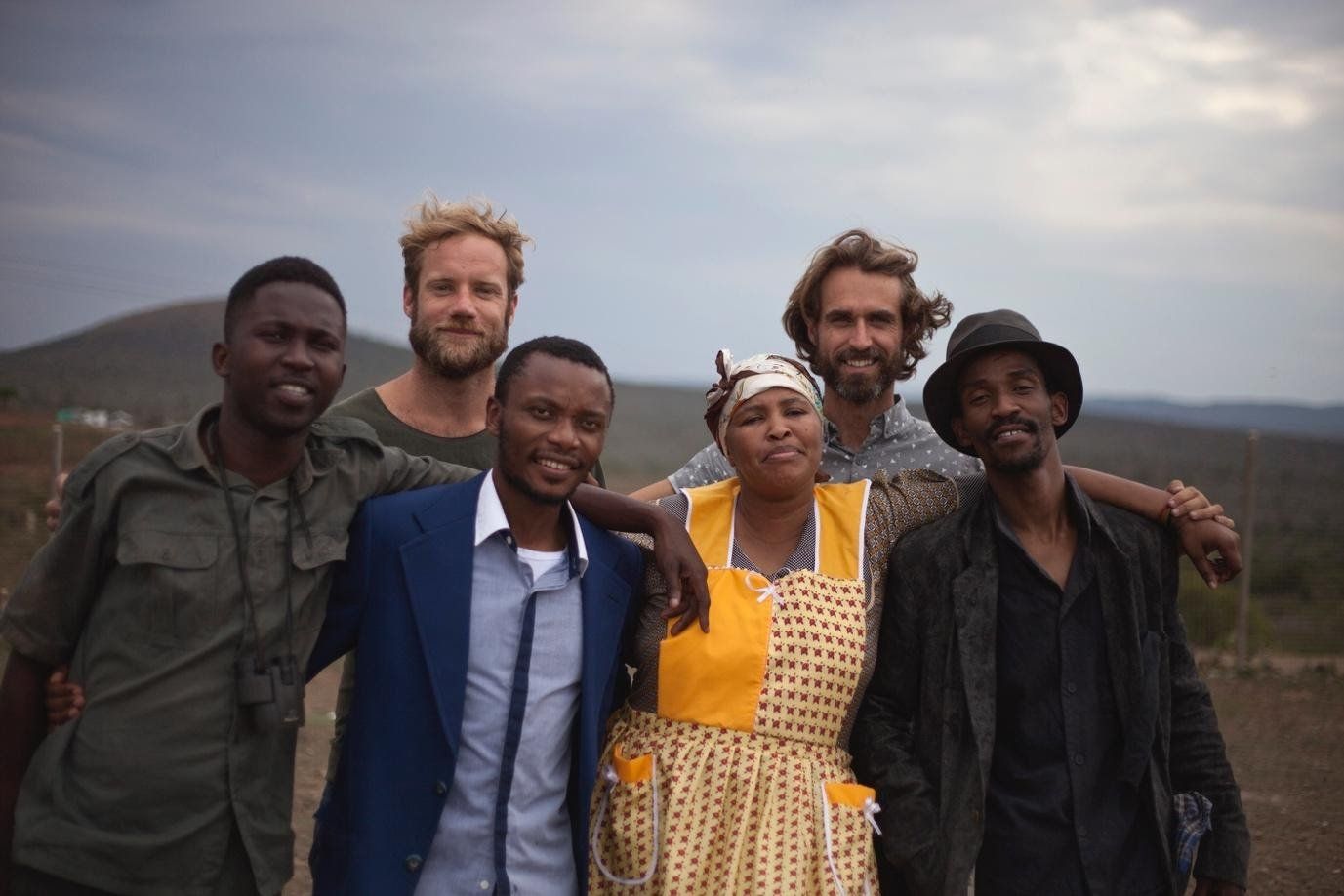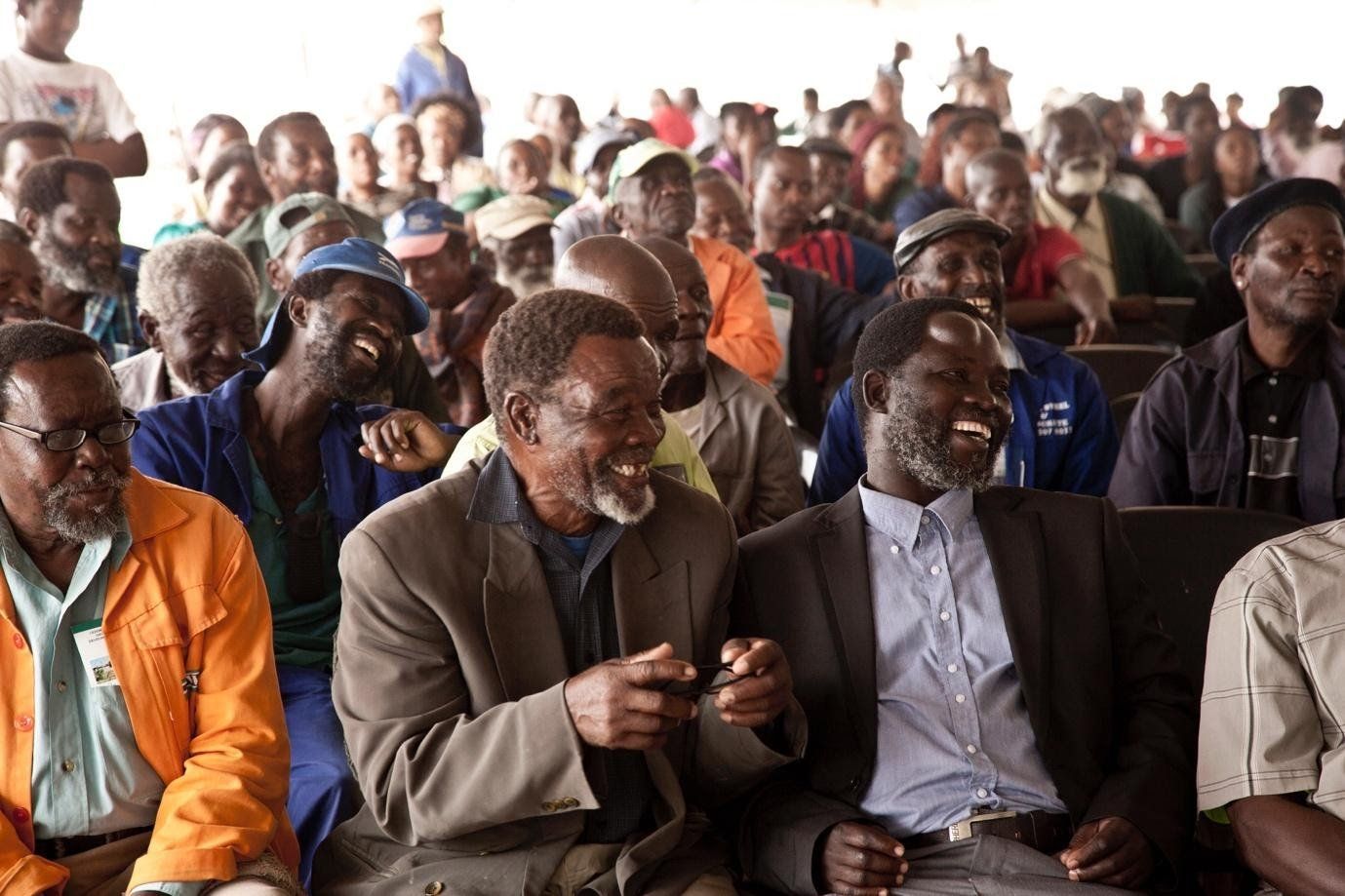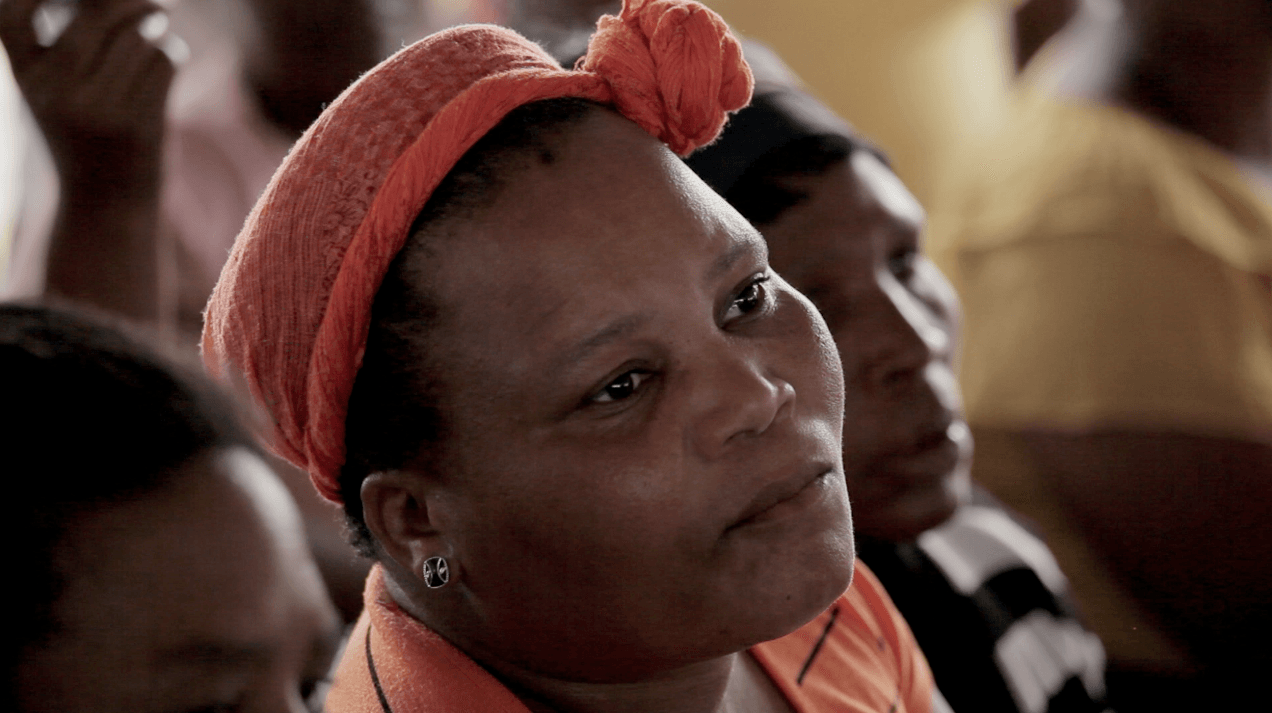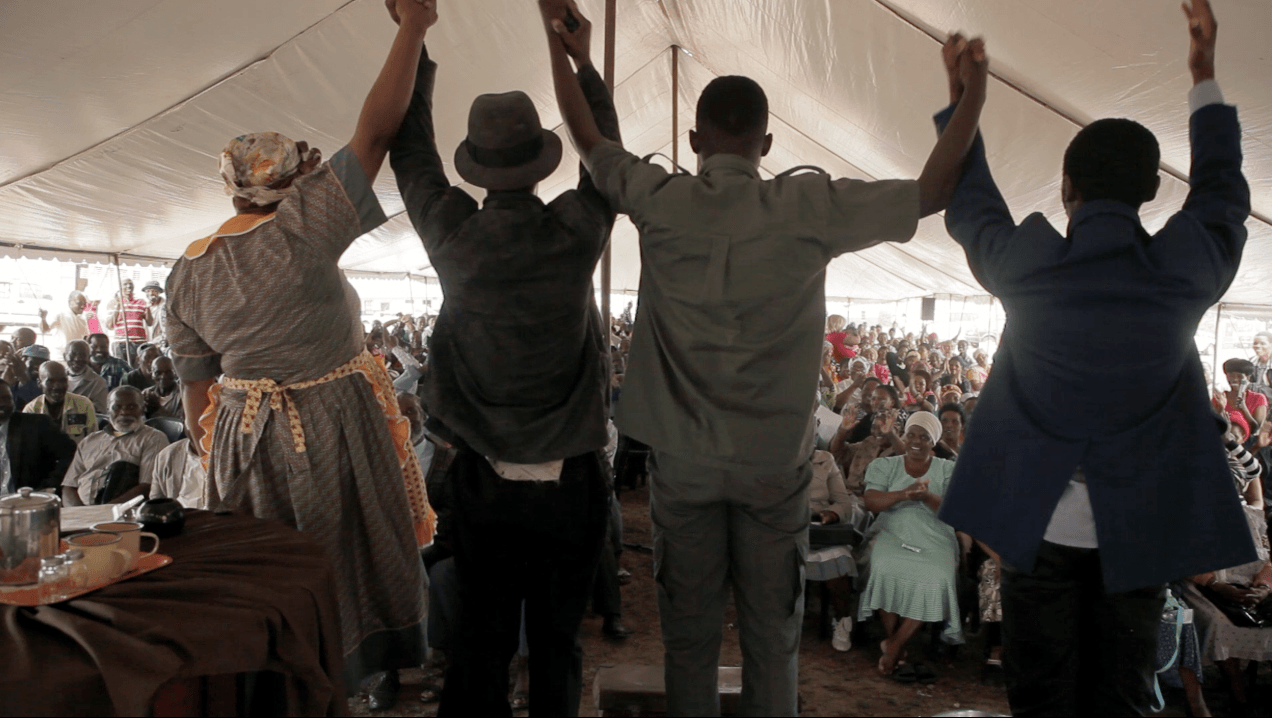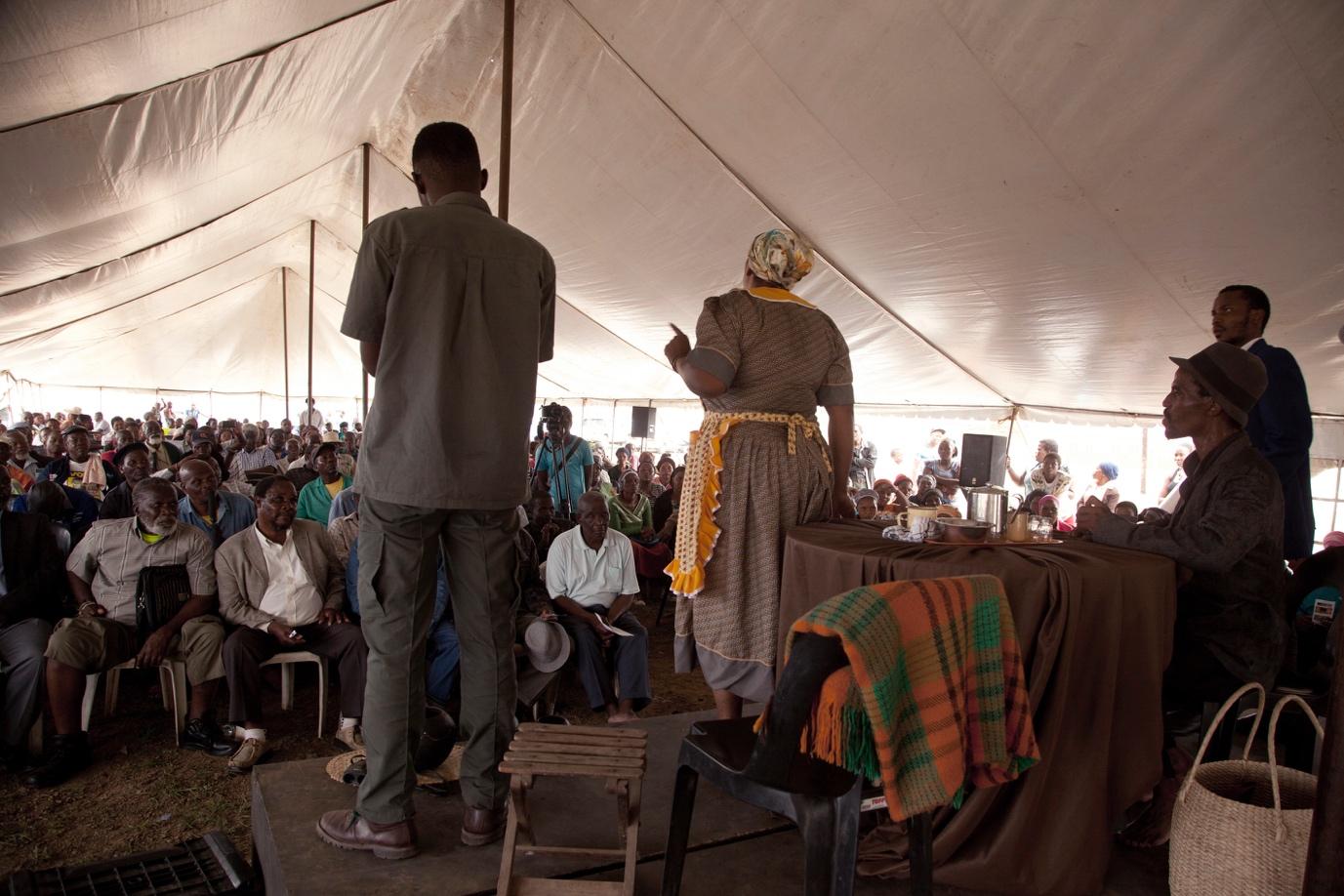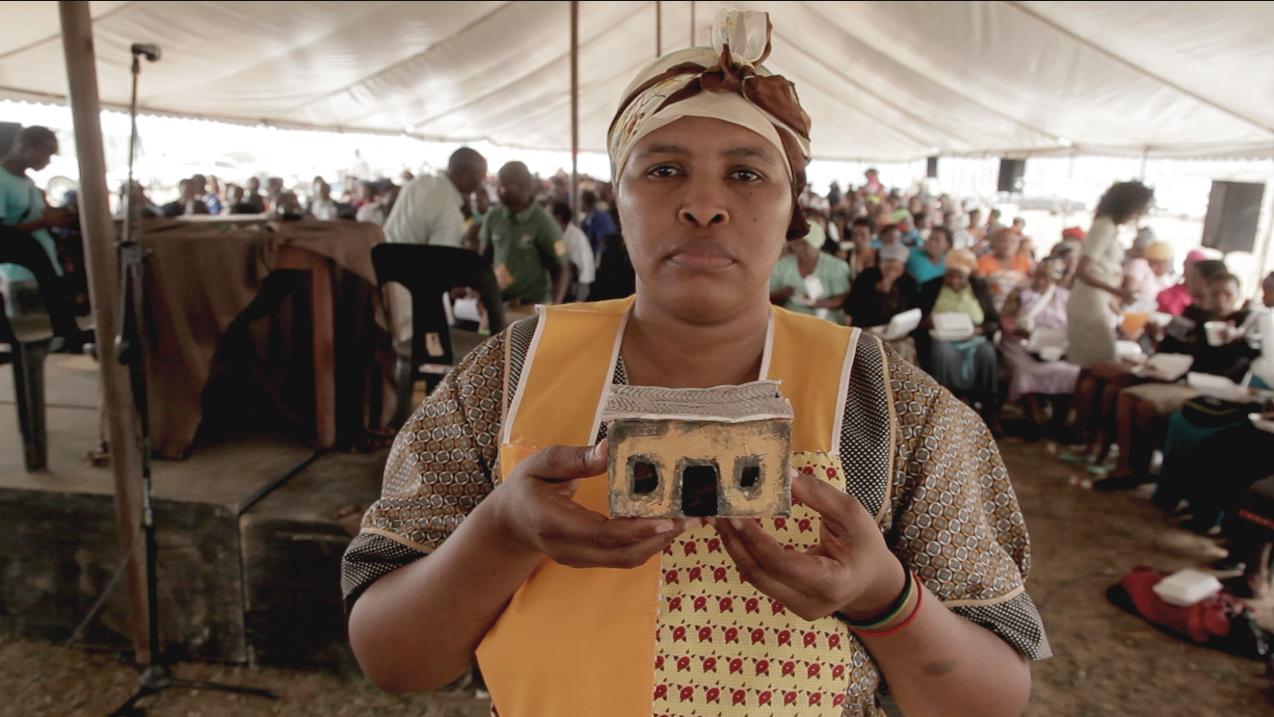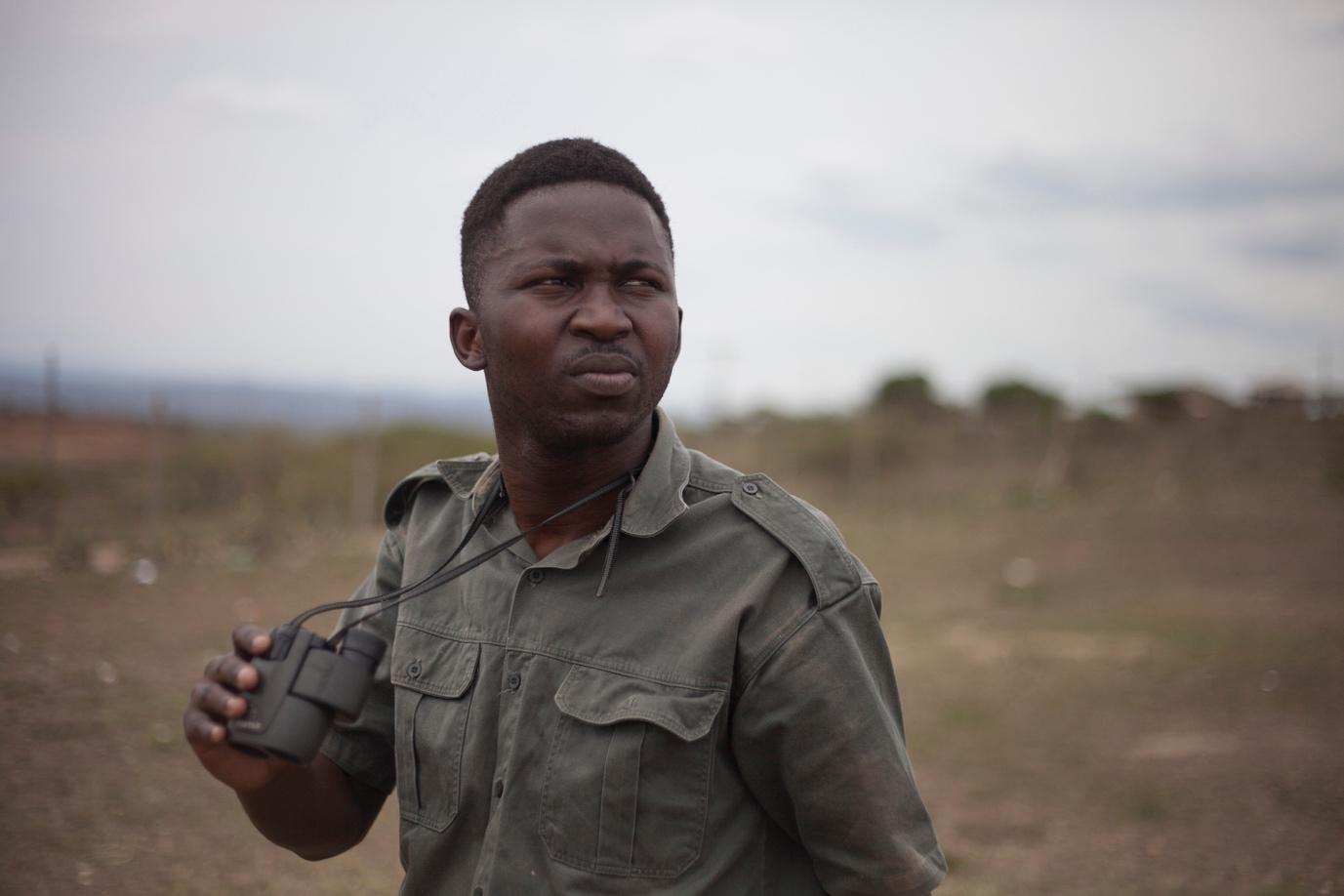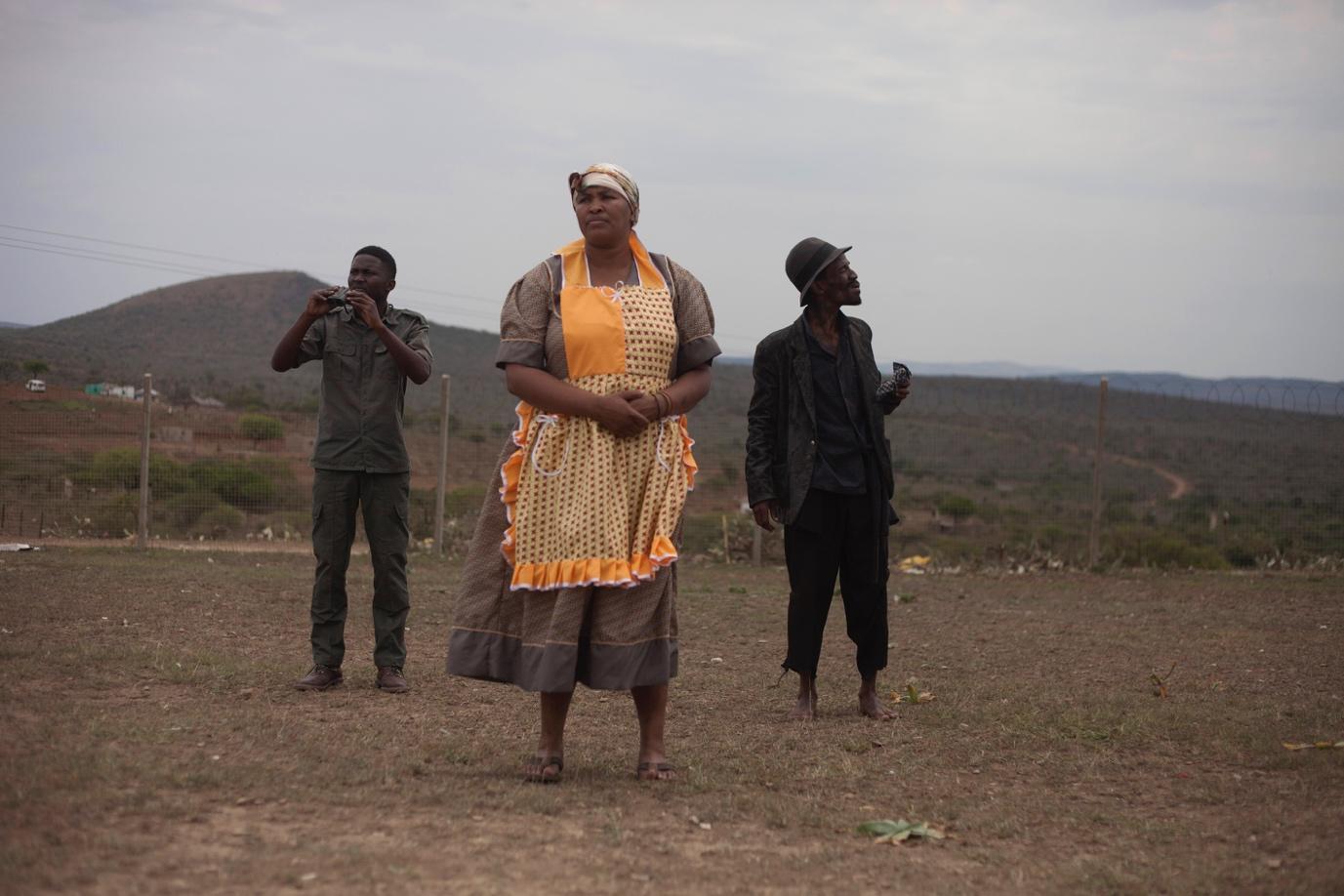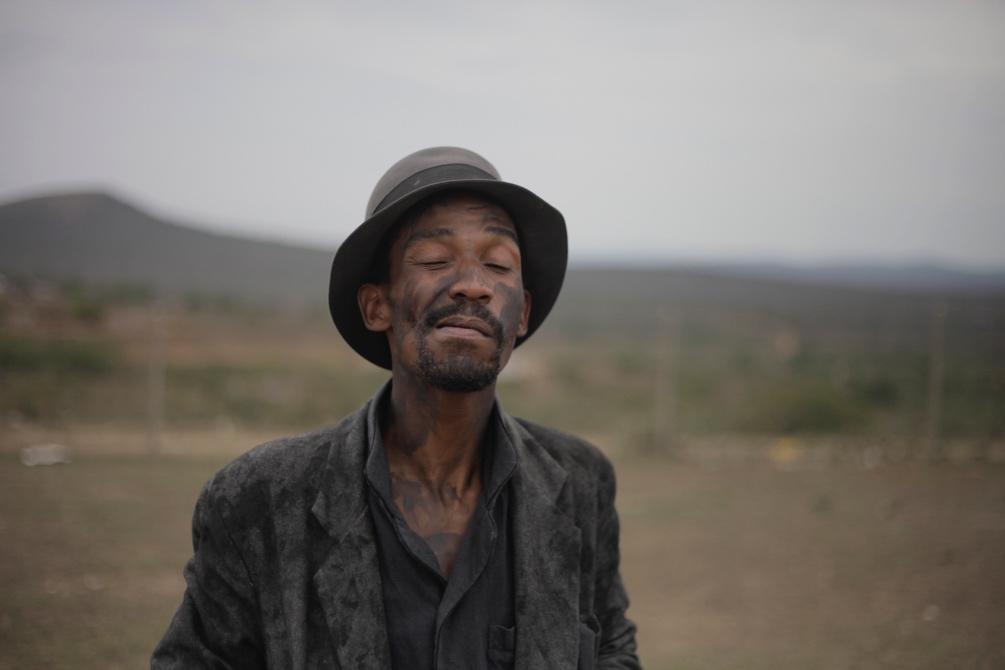Mhlaba noLahle/Soil & Ash
Mhlaba noLahle (Soil & Ash) was a collaborative initiative that drew on aspects of documentary and verbatim theatre. This isiZulu theatre piece, created over 18 months, addressed issues of sustainable rural development and social justice around mining in the iMfolozi area. Mhlaba noLahle offered a research-based theater approach that moved beyond traditional debates that tradeoff sustainability and economic growth. Instead the play surfaced the nuanced reality of residents’ concerns around health, wellbeing, family and livelihoods, in the face of a large coal mining development. Mhlaba Nolahle (2014/2015) offered the residents of Fuleni a public dialogue and tribunal to examine all the livelihood and development options available to them (including but not limited to mining). In this sense the play was an accessible alternative to community meetings, complicated PowerPoint presentations, and public arguments/stale-mates. This Empatheatre project carefully facilitated a collective imagining around alternative forms of development, democratic decision-making and meaningful livelihoods for the Fuleni community living next to the proposed mining site.
Mhlaba noLahle takes place over the course of an evening in the Dlamini family homestead in Fuleni. It is within this household that we meet Nomusa and her two sons: Nhlaba who works as a ranger at the nearby national park, and Nolahle who has a vested business interest in the proposed coal mine. When we first meet Nomusa, she is grappling with a critical decision that requires her to sign, or not sign, away her land to a mining company. Her two sons, with conflicting ideologies and worldviews, attempt to coerce her into taking different courses of action, none of which she is able to consent to. Events take an unexpected turn with the arrival of a mysterious stranger, Khulu Magwaza, who brings with him a powerful story that will challenge the beliefs held by various members of the Dlamani family whilst connecting them to a healing ancestral secret from their past.
Ibutho, a mining company, were engaged in a relentless coercion of community members in the Hluhluwe-Imfolozi region, with the intention to relocate them from their ancestral land in order to mine vast swathes of terrain. The complex political landscape of the proposed Fuleni Coal Mining operation, coupled with the ecological and social sensitivity of the area, made navigating this project a complicated task. At the time of our research the decision to go ahead with the proposed mine rested firmly on the shoulders of four Fuleni communities: Novunula, Ocilwane, Nthunthunga and Nthuthunga Two. The coal mining company Ibutho was allegedly bribing traditional leaders, and successfully fracturing community solidarity and trust.
The research phase of Mhlaba Nolahle consisted of testimonials, oral histories, interviews, exploration of legal documents and images from various communities who had been displaced or affected by land-based mining. Participants included activists and residents, as well as participants from the nearby Somkhele community, who had been coerced into relinquishing their land by similar promises from a mining company. In Somkhele, residents were lumped with the social, health, cultural and environmental costs of these operations, often at the expense of their traditional livelihoods and wellbeing. Using the Verbatim testimonials gleaned from Somkhele residents, our Empatheatre team wove these narratives into an engrossing theatrical storyline, which directly shared these accounts with the community members of Fuleni. In this way the research acted as a conduit for dialogical processes between two neighbouring communities who up until that point had not been able to discuss these concerns with each other.
There were existing pertinent questions being raised by Fuleni residents, and civil society, on how the Fuleni mine would affect people’s lives. Residents were concerned with the inevitable displacement of homesteads, schools, clinics, churches and livestock, as well as ancestral graves, due to mining. The four affected communities also raised the issue of loss of agricultural land and road infrastructure due to mining activity. In addition, there was little clarity for these residents on the promises of financial compensations for displacement, or the expectations of mining jobs. There had been promises made to the community by the co-director of Ibhutu that residents “will never be poor again” if they were to welcome the mine into their community. Yet what we have seen in the past is that few jobs become accessible to local people in the community, with the majority of technical positions sourced from outside.
Ezemvelo, the large wildlife organisation that administers the Hluhluwe-Imfolozi wilderness, were also concerned that noise pollution from blasting, trucks, and trains would have a severe negative impact on educational and tourist industries in the area. The floodlights, noise and dust fallout would endanger not just these tourist industries, they argued, but the welfare of current and future Ezemvelo employees and families.
Considering the many unknowns in the development of the Fuleni Coal Mine, and the track record mines have in South Africa, it became clear that communities around Fuleni should have access to the bigger picture of this proposed development. Mhlaba Nolahle provided a storytelling vehicle in which the audience was able to learn and reflect on real accounts from communities and individuals who have experienced first-hand the long-term costs from mining operations.
Mhlaba Nolahle toured to a range of local Fuleni Junior and High-schools, playing on football fields and in classrooms. In addition it served as the curtain-raiser for an important Fuleni community Indaba, where residents had the opportunity to voice their opinions and concerns on voting for or against the mine. Mhlaba Nolahle illustrated the power that theatre in inciting debate, while simultaneously assisting in aspects of conflict resolution. For an internally divided community like Fuleni, the play enabled residents to navigate difficult conversations around the proposed mine without resorting to personal attacks on one other. Heated political arguments we were told, had characterized previous public indabas on the matter. The play, by echoing both the present-day realities and future concerns of Fuleni residents, and by carefully considering the two opposing stances (those for the mine and those against), without explicitly judging one over the other, worked towards offering alternative and more sustainable longer-term solutions. Such alternatives gave the audiences a new set of tools to work with in arriving at a set of decisions that would be beneficial to all members of the community.
In 2018 the Ibutho application to mine along the boundary of iMfolozi Wilderness was finally rejected.
A translated extract from the script Mhlaba Nolahle (Soil and Ash), a documentary theatre collaboration between Neil Coppen, Mpume Mthombeni, Dylan McGarry, Simo Majola and Menzi Mkhwane.
In this scene Nomusa (played by Mpume Mthombeni) a respected woman of the village, relates a cautionary fairy-tale to her two sons who have fallen into conflict over a proposed coal mine which plans to remove them from their ancestral land . The fable was inspired by testimonies and narratives offered by inhabitants of the Somkhele community.
Nomusa: There was once an Induna who had a handsome herd of cattle and a beautiful wife and daughter. One day while walking with his wife and daughter amongst the cattle, a stranger appeared from out of a large mole hill. The Induna and his wife and their little girl were taken aback at the sight of this creature who seemed to have crawled to earth from deep under the ground. The creature was dressed in a black and covered in a thick coat of dark hair which was smooth and oily in the sunlight. He had long brown fingernails, skin like a snake and the devious smile of a hyena. The Induna’s daughter and wife were frightened by the creature, they did not trust him even when he spoke sweetly, almost singing, to them.
“Induna” he said to the man, “I have journeyed a long distance to make you a very special offer. You see, beneath your land, deep in the underground valleys, lies the most magical of rocks that I am seeking. If you agree to hand over your village and let me dig for this rock, I will agree to double your herd of cattle overnight.”
With that the creature from the molehill produced from his muddy briefcase a small black rock from his pocket and held it out for the Induna and his family to inspect.
“What is that?” said the Induna unimpressed.
“It is the precious rock that lies beneath your homesteads’” said the salesman.
“Haibo, that piece of ugly black rock is the magic stone you speak of?”
“Yes” grinned the man…… “this is all that I am after.”
Induna and his wife were confused. It was not a sparkling stone like a diamond nor a chunk of mesmerising gold. Besides this was the only home he and his family had ever known. They were happy here… it was the home of their ancestors.
Seeing that the Induna was not yet convinced, the creature (who had the skin of a snake and smile of hyena) made him peer into the shiny, reflective surface of the rock and said “Induna if you agree to hand over your village and let me to dig for this rock not only will I quadruple your herd of cattle but on top of that…. all of this could be yours.”
And with that the creature waved his hand and in the rock’s reflective surface the Induna saw the reflection of what their life would be…. and it was paradise, a paradise beyond their wildest dreams. He saw hundreds of cattle entering into a massive kraal that was bigger than the whole village, a kraal that would soon belong entirely to him. He saw, in the reflection, the people of his village and everyone was smiling. No one was poor or hungry…. everyone had jobs. The gardens and fields were overgrown with mealies and the Induna was so hypnotised by these visions that he nodded and said: “Yes…yes surely only a fool would refuse such an offer.”
But Induna's wife did not trust this man and she begged her husband to reconsider. Unlike her husband she did not see paradise reflected in that rock, oh no far from it. When she looked at the surface of that stone, it was as if she was peering into the depths of a bottomless well.
She cried out: “Don’t listen to him, my husband, it’s a trick. I only see a night with no stars reflected in there!”
But the Induna would not listen and he nodded to the stranger, who flashed his hyena smile for a final time, before clicking his grubby fingers.
Suddenly the earth began to shake and shudder and the wind started to howl and a terrible dust cloud surrounded them. Big noisy machines began to roll over the hills with talons outstretched, tearing up the fields as they went. The earth began to groan in despair.
So frightened was the Induna and his family that they began to run. They ran towards the nearest hill but already earth had begun to split apart, swallowing everything up in its wake. The cattle, the mountains, the homesteads, the ancestor’s graves…… everything was vanishing into that hole just like dishwater does when you pull out the plug. Fortunately, Induna was a fit strong man whose legs could carry him well enough up the hill but his wife and daughter were not as fast and fell far behind. As the Induna turned around to face that yawning hungry hole, he saw both his wife and daughter tumbling backwards into it. That was the last time he would see them. The last memory he would have of them. (beat) Was this the paradise the Induna had sacrificed everything for? When he looked over those valleys and hills all he now saw was a living hell.
Lahle: What became of him ma?
Nomusa: Ai it is very sad this story.
Nomusa: He was no longer a respected leader but a disgraced old man. Now all he had to show for those false promises, was a dull black rock that the creature had given him that day. When he gazed into it all he saw was the reflection of his sad eyes, a mirror of his broken heart.
“Thank you for making sure that the play Mhlaba Nolahle came to our community. I am pleased to tell you that yesterday's visit by the theatre team was one of those hard to forget days of our lives. The play made it so clear to us all as the mining affected communities that we have to carry on fighting ICC till the end. I suggested to them that they must make a video of the play because it covers almost every aspect about impacts of mining to the community. On that note, I thank you all for such a wonderful arrangement.”
Phila Ndimande, Spokesperson for the Fuleni communities regarding matters relating to the Fuleni mine. Ocilwane village.
Written and conceived by
Neil Coppen, Mpume Mthombeni, Dylan McGarry, Menzi Mkhwane, Simo Majola and Andile Mcanga.
Cast: Mpume Mthombeni, Menzi Mkhwane, Simo Majola & Andile Mcanga.
Sound Design: Tristan Horton.
Set/Costume Design:
Dylan McGarry and Neil Coppen.
Special thanks to Jenny Longmore & Sheila Berry
Learners from Nhlangwini High School described their anger over one of the actors (Menzi Mkhwane portraying the character of Nolahle) attempted to bully audience members into signing away their land and how closely this echoed their current reality. Learners remarked how crucial it was for members of their family to not make irrational decisions, signing documents without knowing what the full implications of this paperwork was. Pic by Neil Coppen
An impromptu Amphitheatre is created outside a Northern Zululand high school. During the talk-back at Siyokomana Primary School, a woman explained that she could relate strongly to the play as it dealt with respect for ancestors and the issues around ancestral burial grounds. She expressed that, like the protagonist Nomusa in our story, she was not in agreement with the mine because this was her homeland and generations of her family had worked hard to make it their home. Pic by Neil Coppen.
A classroom performance of Mhlaba Nolahle. At Zigqizweni High School and Ntuthunga Primary School, learners commented how the character of Lahle resembled members from their own community who were coercing residents to agree to the mine, luring them with false promises of wealth.
A majority of audience members at the primary and high-schools we performed at, told us in the talk- back how the play exposed how the mine would only offer their community short-term solutions and served as a reminder of how crucial it was to implement more sustainable, longer-term possibilities. Pic by Neil Coppen.
Mhlaba Nolahle (Soil and Ash) Empatheatre team (from left to right): Andile Mcanga ,Neil Coppen, Menzi Mkhwane Mpume Mthombeni, Dylan McGarry and Simo Majola.
Fuleni audiences respond to scenes from Mhlaba Nolahle (2014). Pic by Colwyn Thomas.
Fuleni audiences respond to scenes from Mhlaba Nolahle (2014). Pic by Colwyn Thomas.
Fuleni audiences respond to scenes from Mhlaba Nolahle (2014). Pic by Colwyn Thomas.
Pic by Colwyn Thomas
Empatheatre actors (Mpume Mthombeni, Simo Majola, Andile Mcanga and Menzi Mkhwane) take their final bows in Mhlaba Nolahle before the Fuleni community. Pic by Colwyn Thomas
Empatheatre actors Andile Mcanga, Mpume Mthombeni, Menzi Mkhwane and Simo Majola perform Mhlaba Nolahle for the Fuleni community indaba in Northern Zululand. Pic by Colwyn Thomas.
Mpume Mthombeni as MaDlamini in Mhlaba Nolahle. The character of MaDlamini in the play was applauded by younger audiences for standing her ground and not picking sides with her sons. It was important to learners, at the various schools we performed at, that MaDlamini gave both her children a fair chance to share their opinions and feelings on the mine. Pic by Colwyn Thomas.
Andile Mcanga as Mhlaba in (Soil and Ash). Pic by Colwyn Thomas
Mpume Mthombeni, Andile Mcanga and Simo Majola in Mhlaba Nolahle (Soil and Ash) which was performed in the Fuleni Community. Pic by Colwyn Thomas.
Simo Majola as Khulu Magwaza, an elder who brings with him a powerful story that will challenge the beliefs held by various members of the Dlamani family whilst connecting them to a healing ancestral secret from their past. Pic Colwyn Thomas.
